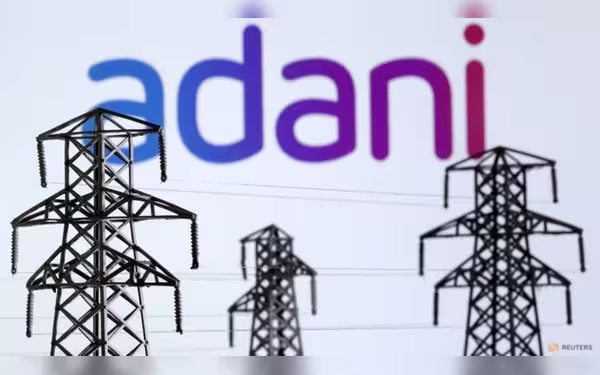Saturday, November 16, 2024 05:47 PM
Bangladesh To Retain Power Deal With Adani Power
- Bangladesh reviews Adani Power contract amid pricing concerns.
- Electricity from Adani crucial for Bangladesh's power supply.
- Legal challenges unlikely; negotiations for tariff reduction expected.
 Image Credits: channelnewsasia
Image Credits: channelnewsasiaBangladesh is set to retain its power deal with Adani Power, despite pricing concerns and ongoing reviews of the contract.
In recent developments, Bangladesh appears poised to maintain its power purchase agreement with India's Adani Power, despite ongoing concerns regarding pricing. This decision comes amid worries about electricity supply and the potential challenges of pursuing a legal dispute. The new Bangladeshi government has established a committee to assess whether the contracts signed by the previous administration sufficiently safeguarded the nation's interests, particularly those agreements criticized for their lack of transparency.
One significant contract under scrutiny is a 2017 agreement that allows Bangladesh to purchase electricity for 25 years from Adani's $2 billion, 1,600-megawatt power plant located in Jharkhand, India. This plant is crucial, as it provides nearly 10% of Bangladesh's total power demand. Given the importance of this supply, outright cancellation of the Adani deal would pose considerable challenges, according to sources familiar with the situation.
Furthermore, pursuing a legal challenge in an international court is likely to be unsuccessful without substantial evidence of any wrongdoing. As a result, the most viable option may be to negotiate a mutual agreement to lower the electricity tariff, which currently costs Bangladesh approximately 12 taka (around $0.10) per unit. This rate is notably 27% higher than that of other private Indian producers and up to 63% more than that of state-owned Indian plants.
Since April 2023, Bangladesh has been sourcing electricity from Adani, alongside an additional 1,160 megawatts from other Indian power plants. However, Adani has expressed concerns regarding the mounting dues owed by Bangladesh, which currently stand at $800 million, part of a larger debt exceeding $1 billion owed to various Indian power companies. The difficulty in accessing foreign currency has complicated Bangladesh's ability to settle these dues.
Despite these financial challenges, Adani Power remains optimistic that the Bangladeshi government will honor its commitments, as the company has consistently fulfilled its contractual obligations. However, the pricing of electricity from Adani has drawn criticism from domestic political factions, including the Bangladesh Nationalist Party (BNP). Senior party leader Zainul Abdin Farroque has emphasized the need for a review of the deal, citing concerns about overpricing from the outset.
The interim government, led by Nobel laureate Muhammad Yunus, took office in August following significant political unrest that led to the resignation of former Prime Minister Sheikh Hasina. Since assuming power, the new administration has already canceled several projects, including a floating LNG terminal, indicating a potential shift in energy policy.
As Bangladesh navigates these complex energy agreements, the outcome of the review process will be critical. The balance between securing reliable energy supply and ensuring fair pricing will be essential for the country's economic stability and growth. The ongoing discussions surrounding the Adani deal highlight the broader challenges faced by nations in managing energy resources while addressing domestic concerns about pricing and transparency.













